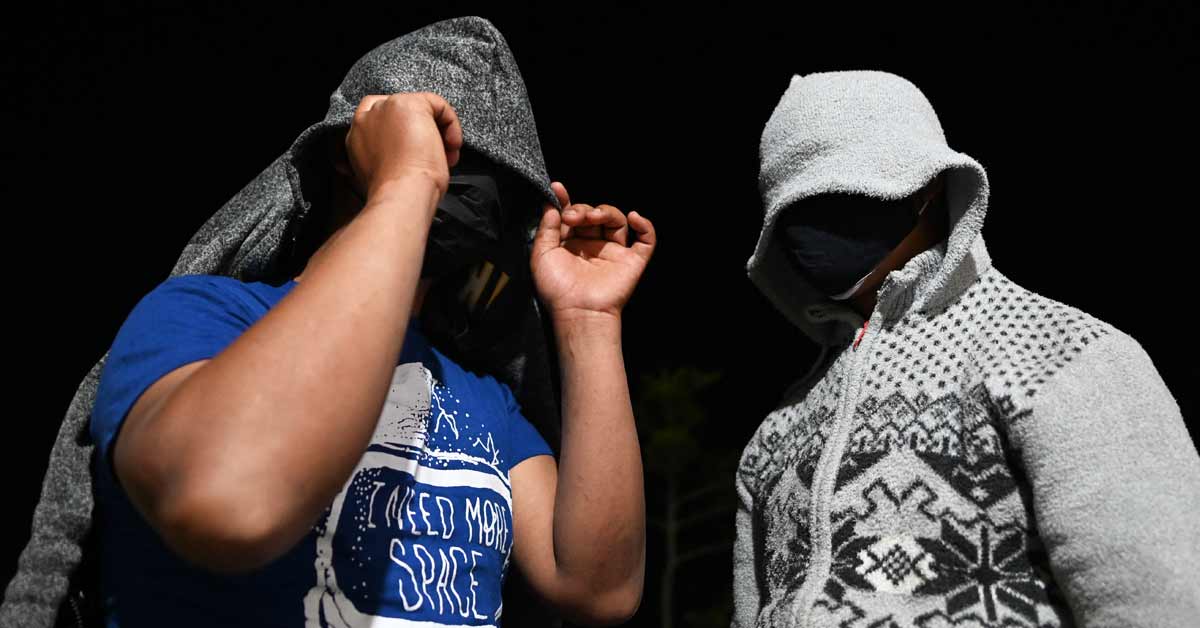Strung across remote mountain settlements, a secret network of activists and volunteers is helping spirit hundreds of defecting Myanmar policemen away from the military’s brutal crackdown on dissent and into relative safety in a small north-eastern Indian state.
Their escape – by car, motorcycle and on foot through densely forested terrain – is often guided by volunteer-led groups on both sides of the border, according to accounts from at least 10 people who are involved in the loose-knit network or have used it to cross the border.
Once in India, local activists and residents provide food and shelter in safe houses, the people said.
Some police personnel have said they fled Myanmar because they feared persecution after refusing to obey the military junta’s orders to shoot protesters.
More than 1,000 people fleeing violence in Myanmar have crossed into neighbouring India’s Mizoram state since late February, according to Indian lawmaker K Vanlalvena. That includes around 280 Myanmar police and more than two dozen fire department personnel.
The tools used by members of the network are simple: social media messaging apps, mobile phone SIM cards from both countries, hardy jeeps and a knowledge of smuggling routes along the Tiau River, a narrow ribbon of water flowing between sparsely populated mountains that separate India and Myanmar.
Several police personnel told reporters they feared imprisonment if caught fleeing by Myanmar authorities.
“It is a matter of life and death,” said a 29-year-old activist named Puia, who has been assisting people arriving from Myanmar in eastern Mizoram’s Champhai town, a seven-hour drive away from the state’s capital of Aizawl.
More than 280 people have been killed in Myanmar amid a wave of protests in the Southeast Asian country demanding the return of the civilian government led by elected leader Aung San Suu Kyi.
The junta earlier this week accused anti-coup protesters of arson and violence while also expressing sadness for the deaths of what it said were 164 demonstrators. It added that it would use the least force possible to quell violence.
The influx from Myanmar could pose a diplomatic challenge for India, which has close relations with the Tatmadaw.
The arrivals from Myanmar have also generated some disagreement between India’s federal government, which wants to keep them out, and Mizoram’s state administration that is keen to provide assistance in line with local sentiment.
Tribes in Mizoram share close ties with Myanmar’s Chin community, which is dominant in the areas bordering the Indian state.
India’s foreign ministry had previously expressed “deep concern” over the military coup, saying democracy and the rule of law must be upheld.
The Indian government issued a directive to four states sharing a border with Myanmar, including Mizoram, to tighten security, according to three Indian officials.
Mizoram state’s Chief Minister Zoramthanga urged Indian Prime Minister Narendra Modi to grant asylum to “political refugees” from Myanmar.
The situation in neighbouring Myanmar is a “human catastrophe of gigantic proportions” that India couldn’t ignore, wrote Zoramthanga, who uses only one name, in a letter dated 18 March to Modi.
‘Sometimes I Am Afraid’
The 510-km-long boundary between Mizoram and Myanmar has long been fluid, with a constant flow of people and goods enabled by a visa-free travel regime in the border region.
One man managing a critical section of the network in an Indian border town in eastern Mizoram is a 60-year-old teacher originally from Myanmar, who speaks Burmese and several local dialects. He described his role in the network on condition of anonymity.
The teacher said he had left Myanmar in the wake of the 1988 suppression of pro-democracy protests by the military junta. As many as 3,000 people are thought to have been killed in those clashes.
He said the calls for help from people across the border began around 26 February, when Myanmar security forces intensified their crackdown on pro-democracy protesters.
He said he receives about half a dozen or more requests for assistance a day, some via phone calls and some via Facebook.
“I help them as much as I can,” he said, tapping away on his smartphone. “Sometimes I am afraid,” added the teacher, saying he feared that his involvement in the network could jeopardise his job at a government school.
‘I Will Not Go Back’
In a nearby village on 15 March, a group of about a dozen recently arrived people from Myanmar lounged in a living room in the house of a community leader. Most of them said they were policemen and firemen.
Dressed in a red football jersey, a man, who identified himself as a fire department official described a difficult journey on motorcycle and by foot to India from Myanmar’s Chin state.
The man, who said his name was Khaw, said he and his fellow travellers hid in the jungle for fear of being caught by Myanmar’s security forces. They didn’t sleep for days.
He said he constantly worries about the wife and four children he says he left behind. But so long as the military crackdown lasts in Myanmar, he said, “I will not go back.” – Reuters
Related Articles:
